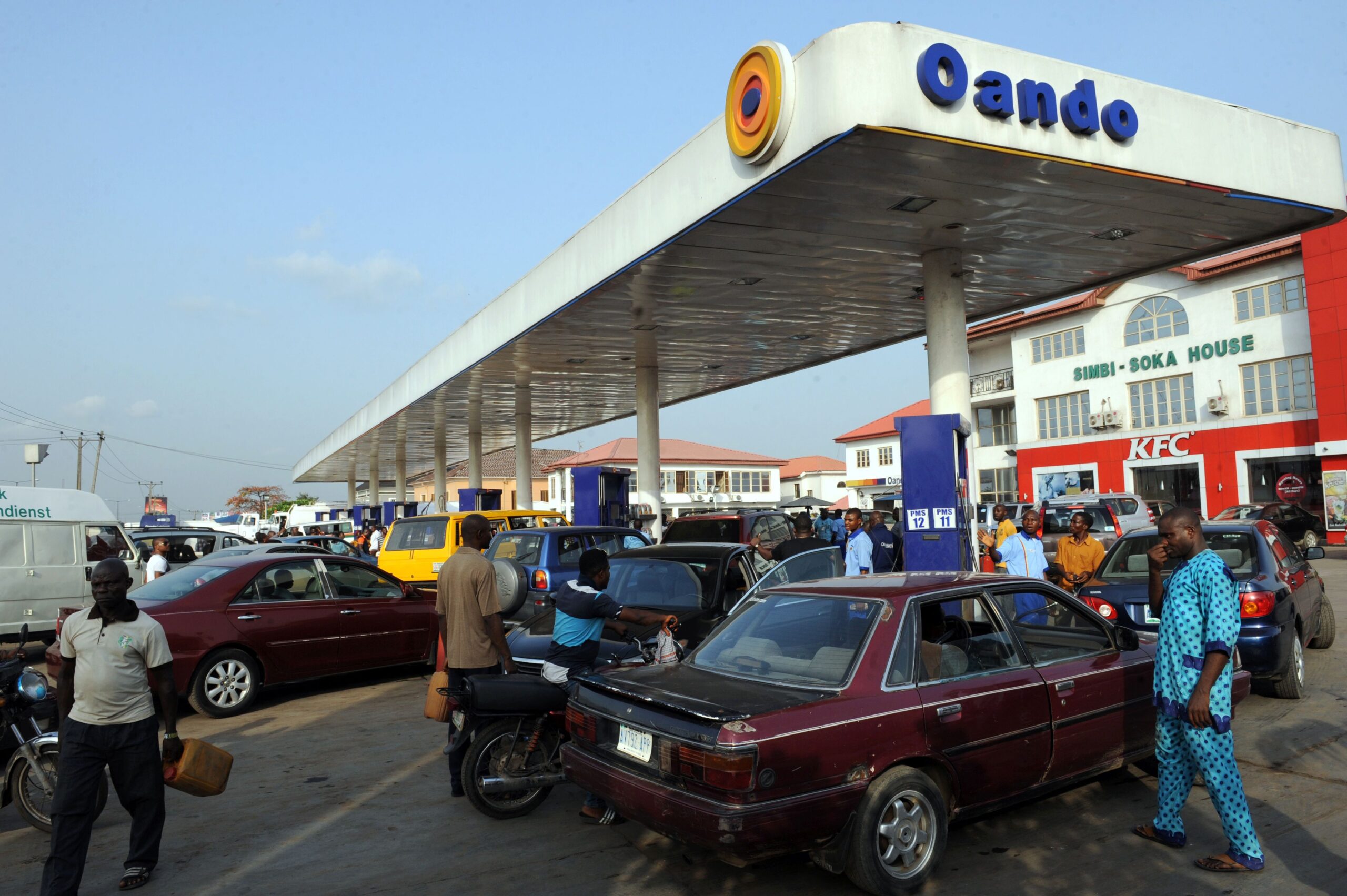Unruly lines of cars searching for fuel caused massive traffic jams earlier this week in Lagos and other cities. Motorbikes ferrying men on the back clutching four or five jerry cans to find fuel were a common sight.
Some commuters just walked. Others jumped off Lagos’ typical yellow Danfo minibuses caught in jams to continue on foot.
“My gauge was on reserve when I left home early this morning but the car stopped mid-way. Luckily, I have a small keg,” said one Lagos driver Onifade. “The government has to do something.”
Around Awolowo district of Lagos, where several filling stations operate, roads were blocked early in the week. Drivers wait on the sidewalk under the sun. Some had slept in the line overnight.
“People that had fuel this morning are the ones that slept in the queue yesterday night,” taxi driver Ali said. “And those people you see right now might sleep here tonight.”
More Budget Costs
Nigeria approved a long-awaited new oil law last year that aims to improve operating conditions to bring in more foreign investment to the flagging sector.
But some of Nigeria’s production is tied up in deals with refining companies for fuel and swaps for infrastructure projects so oil high prices are not the revenue boon they should be.
Today, most of Nigeria’s 1.4 million barrels per day oil output comes from off-shore “deep water” projects, where the government takes only 20 to 30 per cent of revenue, said Bismarck Rewane, an economist at Financial Derivatives Co.
“The increase in price is not enough to compensate for the loss in production,” Rewane said. “Theoretically the picture looks great, but in reality it is more complicated.”
Nigeria’s finance minister last year suggested the costly fuel subsidy programme would end in June as urged by the World Bank and IMF.
But in January, ministers delayed the plan, saying the timing was problematic.
Less than a year from an election, ending subsidies could be costly as Nigerians see cheap fuel as one tangible they get from oil wealth.
“Nigeria, however, is in the uncanny position of being stuck in a subsidy arrangement that guarantees that high oil prices leads to an exponential rise in government expenditure,” said local risk analyst group SBM Intelligence.
“Momentary gains in the government’s coffers, therefore, might not make a big dent in the fiscal deficit.”
Lagos hawkers, though, did not let macroeconomic concerns deter them from another chance for a fast buck.
Sitting on an empty blue 10-litre jerrycan on the roadside, Ahmed said he came just to make cash to supplement his carpet business.
“This is just a hustle,” he said. “This is our oil, and it’s a way to make quick money.”
